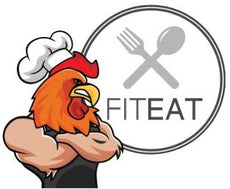A high protein diet is an eating plan that emphasizes foods rich in protein. Protein helps build, maintain and repair muscle, bone, skin and hair. It can also be used as a source of energy and to help regulate hormones in the body. Eating a diet high in protein has many benefits, including helping to reduce hunger and increase satiety, as well as aiding in weight loss and muscle building.
In order to achieve the benefits of a high protein diet, you should aim to include lean sources of protein such as poultry, fish, eggs, legumes and low-fat dairy products in your meals. It is also important to choose healthy fats like olive oil or avocado when preparing meals.
As with any diet, it is important to practice portion control and to ensure that you are also consuming enough fruits, vegetables, healthy fats and complex carbohydrates such as whole grains.
The benefits of high protein diet
High protein diets have been linked to a variety of health benefits including improved blood sugar levels, reduced risk for chronic diseases and improved gut health.
They may also help people lose weight and maintain a healthy body composition. For best results, be sure to consume high-quality proteins and aim for at least 20% of your daily caloric intake from protein sources.
Standard benefits:
- Increased muscle growth and strength
- Improved satiety and appetite control
- Reduced risk of obesity and related diseases
Emotional benefits:
- Increased energy levels throughout the day
- Improved mood and cognitive performance
- Feeling of accomplishment from meeting dietary goals
Food sources of protein
Animal sources of protein are some of the most widely consumed across the world. Meat, fish, and dairy are all staples in many diets, providing high-quality proteins that can easily be used by the body to build and maintain muscle and other tissues. Meat is particularly rich in heme iron and B vitamins, while fish provides essential fatty acids like omega-3s. Dairy products are excellent for bone health due to their calcium content, as well as providing whey protein which can help promote muscle growth and repair.
Plant sources of protein provide a more sustainable option for those looking to reduce their environmental footprint or avoid consuming animal products altogether.
Beans are an excellent source of vegetarian protein, containing high amounts of fiber and nutrients like folate, magnesium and phosphorus.
Nuts and seeds also contain healthy fats in addition to their protein content; these are especially helpful for those looking for a vegan or vegetarian option for quick snacks during the day.
Tofu is another common plant-based source of protein, with a range of different flavors available that make it a great option for cooking meals quickly without sacrificing on taste or nutrition.
High Protein foods such as eggs, quinoa, Greek yogurt, edamame beans, lentils and tempeh provide additional sources of quality proteins in varying textures and flavors.
There is also a wide range of supplements available that provide concentrated sources of amino acids needed to help support steady muscular development; these may be beneficial for athletes who require higher levels of performance or individuals looking to fill nutritional gaps in their diet due to food allergies or intolerances.
Conclusion
In conclusion, a high protein diet can be beneficial for certain individuals. However, it is important to consult with a healthcare professional before making any significant changes to one's diet.
Everyone's dietary needs are different and the right approach will depend on individual health goals and lifestyle factors. With careful consideration of one’s own unique situation and guidance from an expert, you can find out if this type of eating plan is right for you. By following these steps, you can ensure that your nutrition choices are based on evidence-based science rather than guesswork or hearsay.

